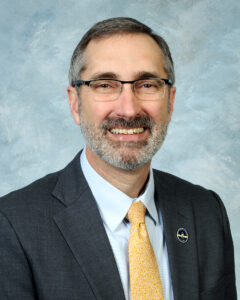15:53
Brief
Quick Takes
House plan would create ‘a hole’ in Kentucky Medicaid budget, Senate committee told
FRANKFORT — The state Senate began its review of the House two-year budget proposal Wednesday, starting with Medicaid, a $15 billion a year program that provides health coverage and other services to about 1.5 million low income, disabled or other Kentuckians.
The Senate Appropriations and Revenue Committee heard from Eric Friedlander, secretary of the Cabinet for Health and Family Services, and John Hicks, budget director for Gov. Andy Beshear — chiefly about their concerns over cuts in the state’s share of the program that gets 70-80% of its money from the federal government.
“This creates a hole in the Medicaid budget for Fiscal Year 25,” Hicks told the committee.

Fiscal year 2025 begins July 1. Hicks said the House’s proposed budget for FY 2026 does not cut Medicaid.
Advocates worry the House plan could force cutbacks in Medicaid services in FY 2025 through more than $900 million in cuts to the amount sought by Beshear, a Democrat, in his budget proposal.
Republicans, who hold supermajorities in both chambers of the General Assembly, will enact the final budget.
Jason Bailey, executive director of the Kentucky Center for Economic Policy, told the Kentucky Lantern that overall, the House plan cuts about $139 million in state funds Beshear sought for Medicaid in FY 2025, which would cause the state to forfeit another $783 in federal matching money for a total of around $922 million.
Rep. Jason Petrie, R-Elkton and chairman of the House budget committee, has said the House budget presumes fewer people are enrolled in Medicaid, now that the federal government is requiring enrollees to recertify annually that they are eligible. That requirement was dropped during the public health emergency of the COVID-19 pandemic.
But Hicks said state budget forecasters worked hard to project how many people will leave Medicaid—so far, around 200,000—and develop an accurate count for the governor’s budget proposal.
“We’ve incorporated those numbers into the budget forecast,” he said. “I’m here to tell you that they are.”

Advocates are hopeful the Senate will restore the state’s share of funds for Medicaid.
Committee members made few comments yesterday as they listened to the Beshear administration officials.
Sen. David Givens, R-Greensburg, expressed concern about the growth in Medicaid, which now covers about a third of Kentuckians, including more than a half million children and the majority of nursing home residents.
He asked how to reduce the number of Kentuckians enrolled in Medicaid.
Friedlander said most adults who are covered by Medicaid and not disabled or elderly are working at low-wage jobs that don’t provide health coverage.
“Getting higher wage jobs, that’s the way that you work on having fewer people eligible for Medicaid,” Friedlander said. “I think that will make as big a difference as anything else.”
Givens suggested a committee meeting during the interim after the legislative session ends to discuss specific ways to achieve that goal, noting that Medicaid has grown significantly during his 15 years as a legislator.
“We’ve got to get a handle on this,” he said.
GET THE MORNING HEADLINES.
Our stories may be republished online or in print under Creative Commons license CC BY-NC-ND 4.0. We ask that you edit only for style or to shorten, provide proper attribution and link to our website. AP and Getty images may not be republished. Please see our republishing guidelines for use of any other photos and graphics.
Deborah Yetter
Deborah Yetter is an independent journalist who previously worked for 38 years for The Courier Journal, where she focused on child welfare and health and human services. She lives in Louisville and has a master's degree in journalism from Northwestern University and a bachelor's degree from the University of Louisville. She is a member of the Kentucky Journalism Hall of Fame.





